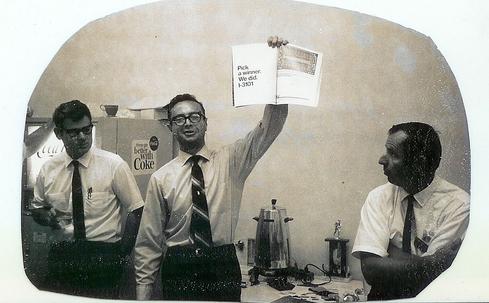Matchstick Tries To Outshine ChromecastMatchstick Tries To Outshine Chromecast
Startup Match.tv aims to challenge reigning streaming media device makers with its open-hardware Matchstick plug-in.


12 Tech Greats: Where Are They Now?
12 Tech Greats: Where Are They Now? (Click image for larger view and slideshow.)
A startup based in Silicon Valley and Beijing hopes to challenge Google, Amazon, Apple, Roku, and other companies with a $25 open-source media streaming device called Matchstick.
Matchstick is designed to be plugged into a TV's HDMI port to receive and display media streamed from a phone, tablet, or computer. It can receive content sent by apps on Android and iOS devices that integrate its sender API, as well as Firefox OS web apps.
Matchstick.tv, the company formed to make the device, hopes to raise $100,000 through Kickstarter to produce the hardware, which will be powered by Mozilla's open-source Firefox OS. At this writing, the project is a third of the way to its goal, with 29 days left to raise the remainder of the funds.
Mozilla is promoting the project on its blog, inviting developers of web apps to apply to receive an early version of the hardware, scheduled for delivery in November.
[Good news for Starbucks surfers: Read Coffee Shops' WiFi Ranked.]
"When Google introduced Chromecast we were excited about the possibilities but ultimately were disappointed when they pulled back on the device's ultimate promise -- any content on any HD screen, anywhere, anytime," wrote Matchstick developer Shawn Bow in a post on Tuesday. "We decided to make something better and more open, and to accomplish this we had to choose an operating system that would become the bedrock for the adaptable and open-sourced platform that is Matchstick."
It won't be clear whether Matchstick is "better" than Google's $35 Chromecast until the device is actually delivered to customers in February. It looks to be more open, and Matchstick.tv is certainly playing up the notion of unfettered freedom.
{image 1}
"With no limitations, rules, or boundaries, app developers can explore their creativity to bring mainstream content to places never accessible before as well as unexpected, creative apps and personalized viewing and interactive experiences that just aren't available in closed systems," the company declares on its Kickstarter page.
But it remains to be seen what form such unconstrained creativity might take, particularly given how much latitude Chromecast developers have. Although the ability to stream arbitrary HD content to a TV through a Matchstick app might have some appeal, it's highly unlikely that Matchstick app providers such as Netflix will remove copy protection from their content for the sake of being open.
Openness here means that Firefox OS software and Matchstick hardware can be modified. Matchstick.tv is providing hardware schematics and its bill of materials to allow others to make their own streaming devices. Ambitious startups might wish to do so -- if you can convince people to give you money to challenge corporations like Google, you might as well burn through investor funds in style -- but few tech hobbyists seem likely to spend the time and energy to build their own versions of Matchstick when they could just spend $25.
Given that Chromecast continues to be a bestseller at Amazon.com, as it has been for many months, it's hard to imagine that the US market will embrace Matchstick, a very similar device, for the sake of openness and $10 in savings. But in countries such as India, where Firefox OS has been making some gains, Matchstick could catch fire.
If you just look at vendor financials, the enterprise storage business seems stuck in neutral. However, flat revenue numbers mask a scorching pace of technical innovation, ongoing double-digit capacity growth in enterprises, and dramatic changes in how and where businesses store data. Get the 2014 State of Storage report today. (Free registration required.)
About the Author
You May Also Like






